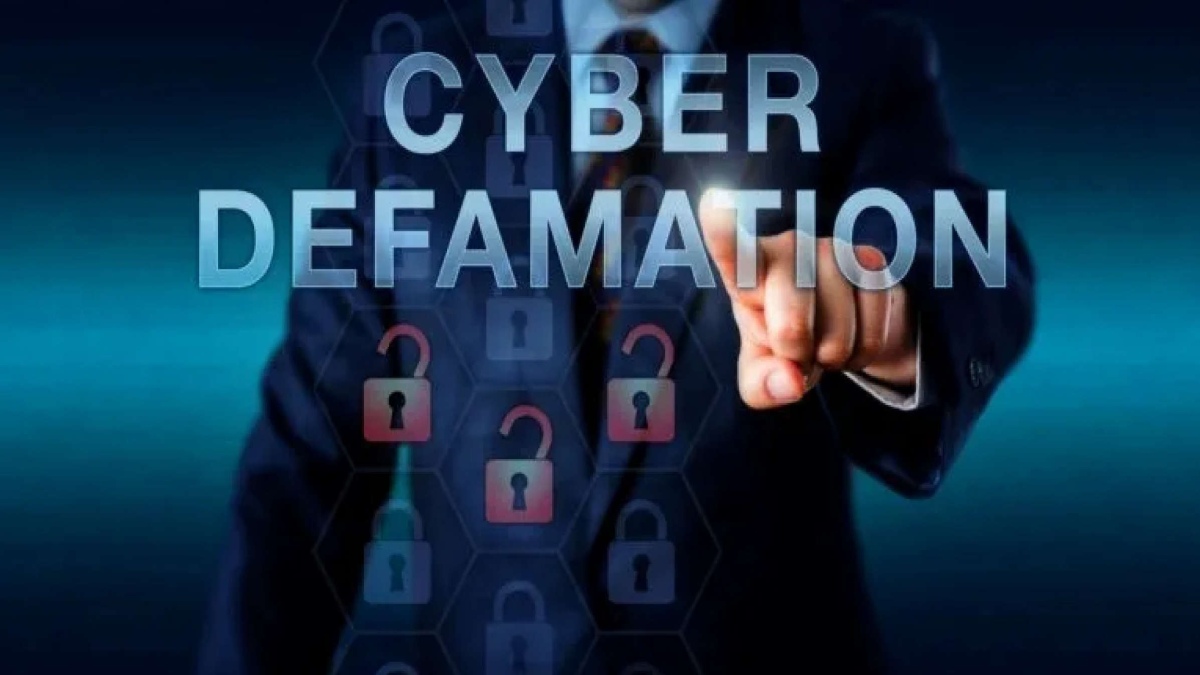Cyber Defamation in India – Simplifying Laws and Issues
In the dynamic landscape of the digital age, the internet has revolutionized the way we communicate and access information. Social media platforms have become integral parts of our daily lives, providing avenues for sharing thoughts, opinions, and experiences with a global audience. However, amidst the convenience and connectivity facilitated by these platforms, a darker side emerges – the risk of cyber defamation.
Understanding Defamation
Defamation, in its essence, is the deliberate and wrongful publication of false statements aimed at harming an individual’s reputation. This harm can manifest in various forms, tarnishing one’s standing in society and causing emotional distress. To constitute defamation, certain elements must be present: the publication of the defamatory statement to a third party, reference to the plaintiff, and the defamatory nature of the statement itself.
Types of Defamation
Defamation can manifest in two primary forms:
- Libel: This pertains to defamatory statements that are expressed in written or permanent form. Examples include posts on social media, articles in newspapers or magazines, and blog entries.
- Slander: Slander, on the other hand, involves spoken defamatory statements that are transient in nature. This can include conversations, speeches, or radio broadcasts, among others.
While the mediums differ, both libel and slander have the potential to inflict significant harm on an individual’s reputation and livelihood.
The Emergence of Cyber Defamation
The advent of the internet and the proliferation of social media platforms have democratized communication on an unprecedented scale. Individuals now have the power to express their thoughts, opinions, and grievances to a vast audience with just a few clicks. However, this newfound freedom of expression has also given rise to the phenomenon of cyber defamation.
Cyber Defamation Defined
Cyber defamation, often referred to as online defamation or internet defamation, involves the dissemination of defamatory material through digital channels. This can include social media posts, comments on forums or blogs, emails, and other electronic communications. The defining characteristic of cyber defamation is its occurrence in the virtual realm, where statements, once published, can spread rapidly and reach a wide audience within moments.
Liability in Cyber Defamation
In India, cyber defamation can incur both civil and criminal liability, with legal recourse available to aggrieved parties under various statutes, including:
Indian Penal Code (IPC): Sections 499 and 500 of the IPC outline defamation as a criminal offense, punishable by imprisonment or fines. These provisions apply to defamatory statements made through electronic means, including social media platforms and email.
Information Technology Act, 2000: The IT Act supplements the IPC by addressing cybercrimes, including cyber defamation. Section 66A, which formerly penalized offensive online communication, was struck down by the Supreme Court in 2015. However, other provisions of the IT Act, such as those pertaining to forgery (Section 469) and criminal intimidation (Section 503), remain applicable to cyber defamation cases.
Challenges and Issues
While the legal framework provides avenues for recourse, prosecuting cyber defamation cases presents unique challenges:
- Identification of Perpetrators: The anonymous nature of online platforms poses challenges in identifying individuals responsible for defamatory content. Without proper attribution, holding perpetrators accountable becomes a daunting task.
- Third-Party Readership: Determining the individuals who have read or accessed defamatory content poses another challenge. In cases where defamatory material is shared or reposted by multiple users, identifying all potential readers becomes virtually impossible.
Employers’ Liability
In recent years, courts have grappled with the issue of employers’ liability for defamatory actions committed by their employees. In the case of SMC Ltd. v. Jogesh Kwatra, the Delhi High Court restrained an employee from sending derogatory emails to the plaintiff and other subsidiaries of the company. While the employer was not held vicariously liable, the case underscored the need for employers to exercise diligence in monitoring and addressing employees’ online conduct.
Recommendations for Improvement
To address the challenges posed by cyber defamation and strengthen legal mechanisms, the following recommendations are proposed:
- Establishment of Specialized Cybercrime Units: Dedicated cybercrime investigation cells, equipped with trained personnel and resources, can streamline the handling of cyber defamation cases and ensure swift action against perpetrators.
- Enhanced Public Awareness: Awareness programs aimed at educating the public about cybercrimes, including cyber defamation, and preventive measures can empower individuals to protect themselves and others from online harm.
- Judicial Training and Specialized Courts: Training programs for judicial officers and the establishment of specialized cyber courts can expedite the adjudication of cyber defamation cases and ensure equitable justice.
Conclusion Cyber defamation poses significant challenges in the digital age, threatening individuals’ reputations and well-being. While existing legal frameworks offer avenues for recourse, addressing the complexities of cyber defamation requires proactive measures. By enhancing legal mechanisms, raising public awareness, and fostering collaboration between stakeholders, India can mitigate the impact of cyber defamation and uphold justice in the digital realm. It’s imperative that laws evolve to keep pace with technological advancements, ensuring that individuals can exercise their rights without fear of online persecution.
Ready to protect yourself against cyber threats? Trust Cyber Crime Legal ‘s seasoned professionals to defend you against a range of online dangers, from crypto scams to phishing attempts. With our expertise in crypto and forex cybercrime defense, credit card fraud, cyberbullying, and more, we tailor robust defense strategies to suit your unique needs. Don’t wait until it’s too late – safeguard your digital assets and reputation today with Cyber Crime Legal.








